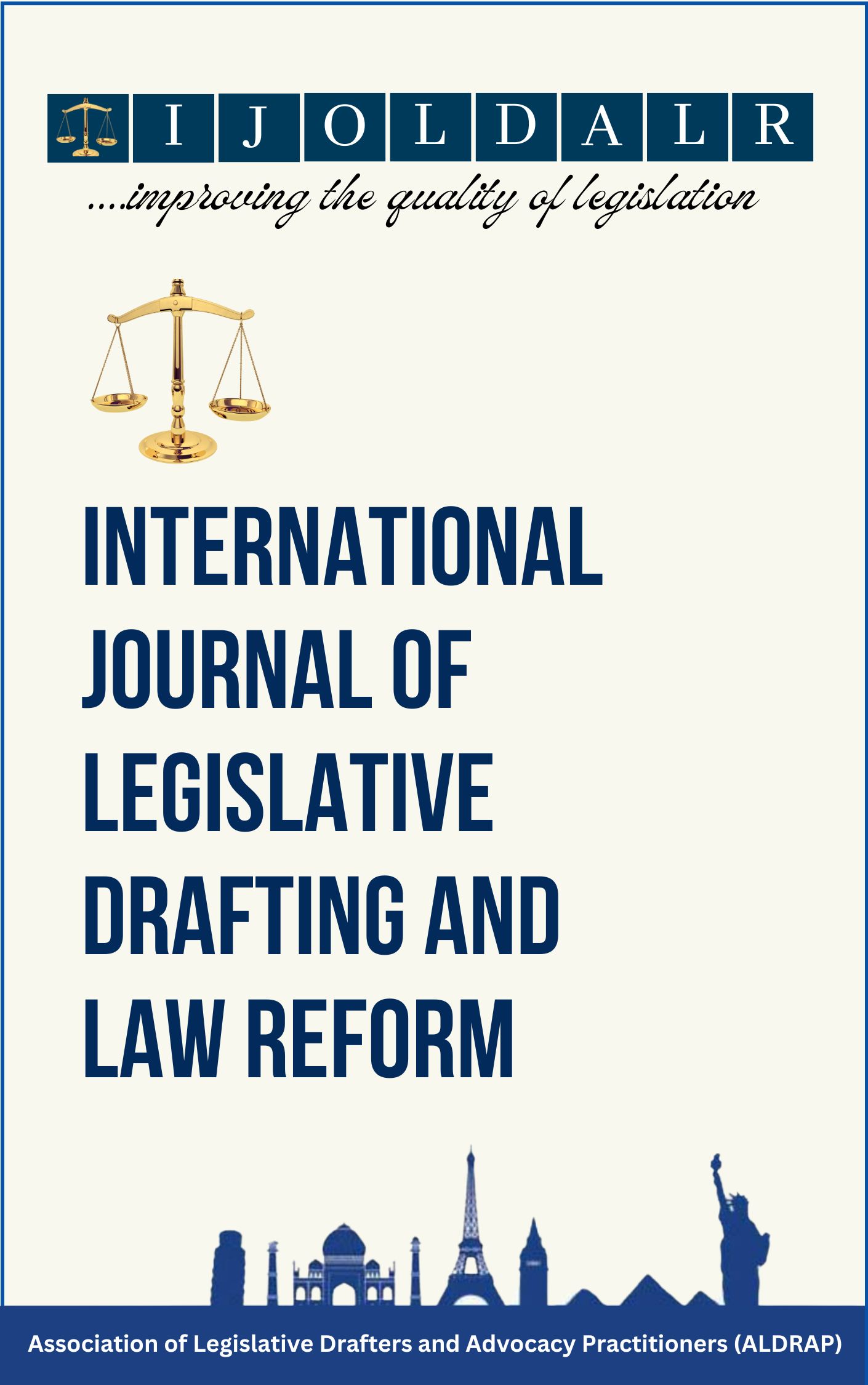Abstract
The law books in Nigeria are inundated with spent, obsolete and anachronistic laws with no capacity to achieve their targeted legal objectives in spite of the enormous constitutional powers of the NationalAssembly toevaluate andreform them upon implementation to synchronise them with current realities. There is no systematic institutionalized mechanism in Nigeria to automatically prompt review and evaluation of legislation for possible reform of moribund, spent and anachronistic legislation with current realities to synchronise them. The paper aimed at bringing to the fore thenecessity to conduct Post-legislative Scrutiny on existing legislation upon implementation to determine its effectiveness or otherwise as legislation cannot remain effective for eternity in the face of changes in the society. The objectives of the study include examining the concept of Effective Legislation and the criteria for determining effective legislation in Nigeria and to ascertain the existence of legal and institutional framework for the conduct of Post Legislative Scrutiny in Nigeria. The study adopted doctrinal method in the analysis of data in achieving the objectives of the study mentioned above. In the course of the study, the researcher also employed comparative research approach to see how the concept of Post legislative scrutiny is practised in different countries. The study found that legislation cannot remain effective in perpetuity in the face of societal changes despite the professionalism infused into the drafting of it and the observation of the global best legislative drafting theories, principles and conventions. It was also found that Nigeria has no institutionalized systematic mechanism to automatically trigger evaluation of the impacts of laws enacted by the legislature in the past to determine their effectiveness. The recommendations that are made on the basis of these findings are that Post-Legislative scrutiny be carried out at regular intervals on subsisting legislations by a designated committee of both Houses of the National Assembly to correct identified errors in legislation and possibly amend the legislation where necessary to synchronize the legislation with current realities. Furthermore, all legislations passed by the National Assembly should contain a review clause and ministerial undertaking to submitMemorandum of Implementation to the National Assembly to automatically set in motion the process of Post-Legislative Scrutiny as and when due. The conclusion that is made at the end of the study is that post legislative scrutiny is a sure correctional mechanism for effective legislation and as such is worthy of incorporation into the Nigerianparliamentary practice.



 National Library of Nigeria
National Library of Nigeria.jpg) Association of Nigerian Authors
Association of Nigerian Authors Nigerian Library Association
Nigerian Library Association EagleScan
EagleScan Crossref
Crossref